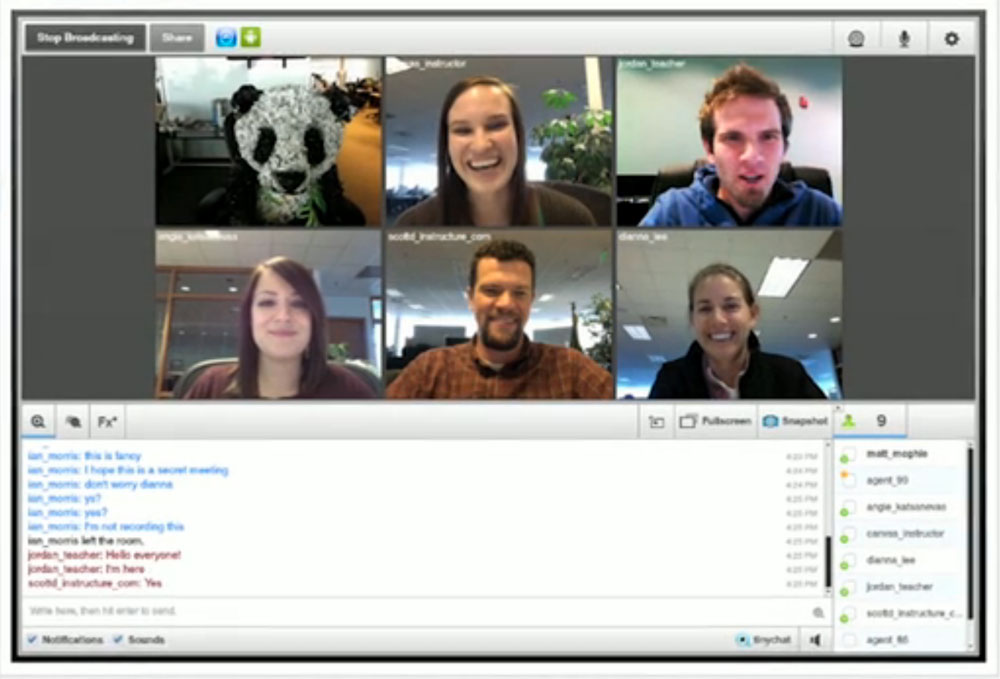By Tara Deschamps
Ryerson may be saying goodbye to Blackboard after a week of demonstrations to find a replacement learning management system (LMS). LMS Demo Week will run between April 2 and 9. The event will ask students to evaluate how Blackboard stacks up against the competition.
Ryerson adopted Blackboard nearly 10 years ago to allow students online access to course materials, foster group discussions, and check their grades.
According to Computing and Communications Services Director Brian Lesser, Blackboard is starting to show its age.
He says “people find the user interface clunky, the old virtual classroom is useless, the discussion forum is not good.” The system only recently started integrating features that many expected to be added years ago.
“We get instructors calling us and saying, ‘is there an add-on for Blackboard that will give me wikis and blogs?’ and we say, ‘well you know it’s coming in the next edition of Blackboard,'” he says.
Professor Kathryn Woodcock agrees that Blackboard has its flaws.
“Blackboard has very sluggish response compared to other software,” she says. “It takes forever to load material and input marks.” In addition to disappointing staff and students, the system is also costing the university a lot of money.
Lesser says maintaining Blackboard this year will cost about
$220,000 with next year’s projected to ring in at $226,000.
In addition to licensing for the system, the university is charged extra for upgrades, special features and mobile compatibility, making Blackboard less cost-effective.
“When you’re paying that kind of money you wonder, ‘why do I have to buy things like the mobile component separately when I’m paying for new features and components already?'” Lesser says.
While he can’t yet quote a price, he says Ryerson is considering more than money.
Ryerson recently joined a provincial government e-learning consortium that pledged more online course offerings. Ensuring a new system could handle extensive e-learning functions and users will be key to replacing Blackboard, Lesser says.
“Blackboard really has not been a good product for innovation. It does the basic stuff okay, but it hasn’t been something we can customize. We really need a platform that does innovative and interesting things without feeling like Blackboard is getting in the way,” he says.
LMS Demo Week will feature an upgraded Blackboard system, Desire2Learn, Moodle, Canvas, Sakai and Open Class.
“It’s about thinking about how people work with different tools and how that might impact your user experience,” Lesser says. “Let’s say you see a feature that’s in Desire2Learn, that’s maybe not in Blackboard or Sakai or done differently in those three systems. You can say I like the way it’s done in product x because it has advantages that informs us what to look for.”
After LMS Demo Week, Lesser says the replacement search will slow down for the summer. His department will compile opinions and consider hosting surveys and town hall meetings this fall.
If they decide it’s time for Blackboard to go, the decision will move to a committee including the provost and vice-president of administration and finance.
“I used to think that maybe we would be piloting something in the fall but based on delays and demo week this late in the term, the most I would expect is that we may run some pilots in January, but that’s not assured,” Lesser says.
At the earliest, he says a new system could be implemented by fall 2014.
Ryerson wouldn’t be the first to ditch Blackboard.
In January, New York University introduced NYU Classes, a customized system developed through Sakai.
Paul Pastore, a columnist for campus news blog NYU Local, said in a column that test-driving the new NYU Classes was “a far cry from the rusty minivan with cat piss-stained seats aura of Blackboard.” He says the new system is more streamlined, offers features like a calendar that keeps track of assignment deadlines and makes navigation easier.
“In Blackboard, you would have to go digging to find your course’s syllabus or your grades,” he says. “With [NYU] Classes everything that you need to access is readily available, and no tools are buried within other pages.”
Still, Woodcock points out that Blackboard has its advantages.
“Blackboard enables a shared portal for links, readings- no more handouts or lists of marks in the hall,” she says. “[It’s] also convenient that Blackboard provides tools for emailing individuals and groups.”
Pastore also admits the system isn’t without its charm.
He says, “We’re still gonna miss Grandpa Blackboard’s nonsensical interface and vintage Windows ’97 charm. Blackboard’s senility itself was kind of endearing. He always made everything more complicated for no reason, but we had to keep crawling back to him all the same; ultimately we knew deep down that we really loved him.”










Leave a Reply